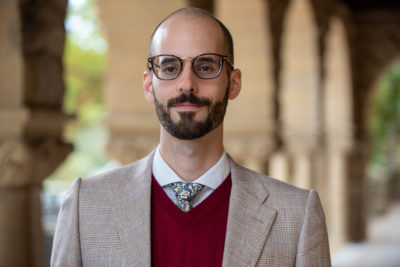 MacArthur Postdoctoral Researcher, Biomedical Ethics Unite, Faculty of Science, McGill University
MacArthur Postdoctoral Researcher, Biomedical Ethics Unite, Faculty of Science, McGill University
“The Japan Foundation fellowship simply made my career.”
Dr. Polleri’s fellowship allowed him to conduct research in Fukushima and Tokyo for a year in 2015 and 2016. Since his fellowship, he has published many articles on the 2011 nuclear disaster and on Japanese society.
My research has focused on Japanese public and state responses to the release of radioactive contamination after the 2011 Fukushima nuclear disaster. Based on 14 months of fieldwork in Japan, the research examines the management of residual radioactivity in a normalized state of emergency, where officials adjusted the acceptable radiological exposure threshold for the public to 20 times higher than it had been before the disaster. The research illuminates the diverse strategies for information delivery about radiation risks, as well as how state and public responses clashed and merged together to govern something as controversial as post-disaster recovery.
The Japan Foundation fellowship simply made my career. It has enabled me to do a rigorous research fieldwork without worrying about funding or visa issues. I was able to conduct top notch research, complete my Ph.D., land successful pre- and post-doctoral fellowships, and publish my research in peer-review articles and public venues. Nowadays, securing funding for graduate students is essential to succeed in academia. The fellowship, visa, and help received by the program officers allow scholars to solely focus on research.

 MacArthur Postdoctoral Researcher, Biomedical Ethics Unite, Faculty of Science, McGill University
MacArthur Postdoctoral Researcher, Biomedical Ethics Unite, Faculty of Science, McGill University